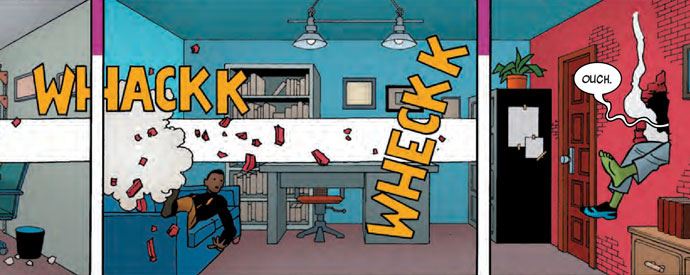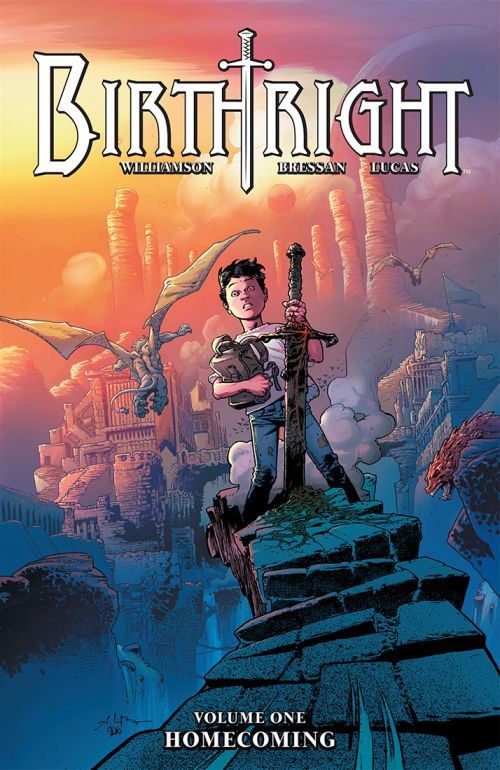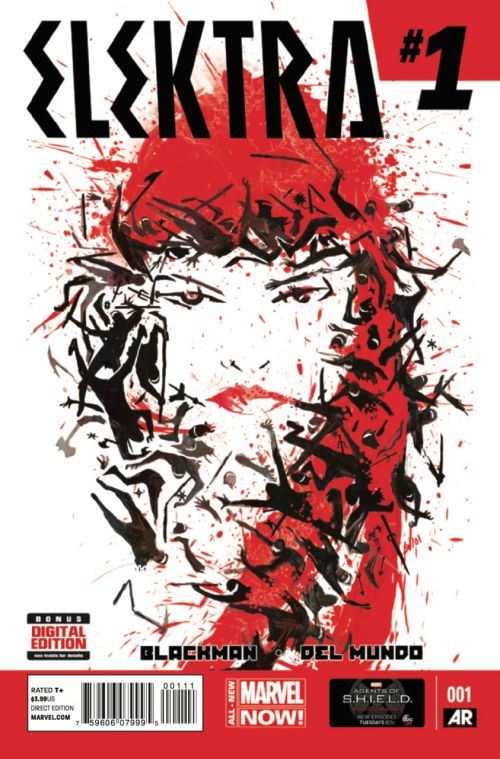Comics /
Spotlight
It's Marvel's Trade Publishing Practices That Are Killing Quality Books

By Dan Horn
March 26, 2015 - 21:53
A few months ago, I picked up Image Comics'
Birthright #1, written by Joshua Williamson and with art by Andrei Bressan and Adriano Lucas. I really enjoyed it: it's a cool little story about a boy who goes missing, only to turn up again a little while later as a much older man who claims he's been to a fantastical world. By this time his family's all torn apart over his loss, and the sudden appearance of this man claiming to be him only exacerbates things. But really the main draw for me was Bressan and Lucas's sumptuous and dynamic covers and interiors.
I missed the next four issues of
Birthright. I'm not sure why. I was caught up in research and just didn't have time for a dispensable entertainment like this series, or most comics series, I suppose. In any case, the first arc ended with issue five in February of this year. The very next month, Image released a rather handsome trade paperback collection of those first few issues, which I gladly snatched up for only $9.99.
Image Comics really has the rest of the market on the ropes when it comes to trade turnaround. A month after any given arc of any given series ends, a book collecting that arc is released, and at an almost unreasonably low price point. It's the perfect hook. Of course, most Image series are hampered by monthly delays, but--really--getting that first trade promptly to print is likely the most important part of the publishing process. The buzz surrounding the book is still fresh five or six months after the series debut. Maybe this is partly the reason why
Saga trades have been topping the charts for years now. Image got the first paperback collections out the door right in that temporal sweet spot at which buzz becomes a feverish need to finally get your hands on the story, right before that need lapses into apathy.
Image has also caught onto something readers have been telling publishers for a while now, too: save the collector's edition hardcover trades for the collectors, for the super-fans. There's no need to rush a hardcover to print. Get the paperback out for readers to
read, then worry about satisfying the hardcover demand, which is bound to grow the more people you have falling in love with your book.
Most other publishers don't seem so savvy when it comes to trades.
This week another fantastic Marvel series,
Elektra, comes to a seemingly premature end, and I have to wonder if the sales on
Elektra would have been much better had the first trade paperback been put out at a reasonable time. Marvel Comics has a nasty reputation for putting out trade collections months after an arc has wrapped up, and usually the first collection of said arc is an overpriced hardback of questionable quality. I've talked about these hardback travesties at length before, so I won't waste anymore time on it here (and to be honest Marvel has vastly improved on its hardback publishing since last I bitched). But suffice it to say that no one was looking for the
Elektra trade when it finally dropped, nearly three months after the last issue it collects was published, unless you were really up on your solicitations. It's probably fair to assume most readers--especially non-monthly readers--aren't scouring monthly solicitations with any regularity.
This isn't great for monthly readers, either, mind you. You missed a few issues of a new series you heard is wonderful. You're waiting for the first trade to come out so you can get caught up. But by the time the trade is out, you've already missed another three issues of the next arc, too. And now the publisher is telling you the series is being cancelled because you weren't buying the issues on
their time. It's a vicious cycle.
I have a feeling Charles Soule's
She-Hulk's fate was similarly sealed. The series was cancelled shortly after the first trade hit stands, but it seemed to me that word was just getting around that, hey, there's this new
She-Hulk book out, and it's great! Had the trade paperback come out right after the first arc ended, could we still be reading that fantastic
She-Hulk series? I think that's probably the case.
Marvel has one up on Image: it doesn't suffer the same monthly delays as Image books--at least not to the extent that Image does. Marvel's got a much larger stable of books, and they're all being released on time for the most part--and maybe it's the size of that stable that has something to do with the delay in trade publishing. But when Marvel issues some press release about a new
Thor or a new
Captain America, and then non-monthly readers can't get their hands on a trade paperback of the new
Thor or the new
Captain America for a year or a year and a half after the press release, I have to wonder, what the hell is the point? How is this sustainable publishing? How is this even competent? The general public, non-monthly readers, the lot of them, really has no idea when
it will be able to read a book Marvel is pushing on
USA Today or
CNN or what have you. And Marvel's answer to this seems to be, well, maybe these people will wander into a Barnes & Noble and be surprised what they might find in the graphic novel section at the back of the bookstore, where you have to step over and straddle a bunch of kids sitting indian-style in the aisle and reading manga they have no intention of purchasing. Brilliant.
Before I come off sounding like some kind of Marvel hating troll (and I really don't dislike Marvel at all: that's the point), I'd like to point out that DC has very similar problems in this area. Hell, I remember waiting for the first trade of
Talon to come out so I could give the series a go, and DC announced the series' cancellation before the book even dropped. Why would I want to read the first volume of
Talon with that in mind? Generally, though, DC Comics seems a little more hesitant to cancel books just for low sales, especially if a book's critical reception is favorable or the book has a small, but fanatical, fan-base.
I'd also like to point out that I know very little about publishing. I'm almost positive that the quantity of books published by these large, corporate houses, and the sheer size of their creative bullpens, has an impact on when trades can be solicited and printed. But all I'd like to know is, couldn't there be a better way to approach this issue? Couldn't
She-Hulk Volume 1 have been a New York Times bestseller?
Shouldn't it have been? I just can't shake the feeling that all of this is being mishandled on some level. Perhaps Marvel and DC should be looking to Image for guidance in this matter.
However, if any Marvel or DC publishing execs would like to set me straight on this issue, feel free to reach out to me and tell me what's what. I'll gladly write up an accurate article about the in's and out's of Big Two publishing.
In the end, it's just wonderful that Marvel gives books like
She-Hulk and
Elektra a chance at all. Marvel has really been pioneering a publishing movement that does not conform to a "house style." Their publishing line is eclectic and exciting. I only wish we could hang onto some of these titles a little longer, maybe see them reach some maturation before they're put out to pasture. Or perhaps my own sentimentality is the problem here.
Follow Dan @dan_horn on Twitter.
Last Updated: March 3, 2025 - 20:40


